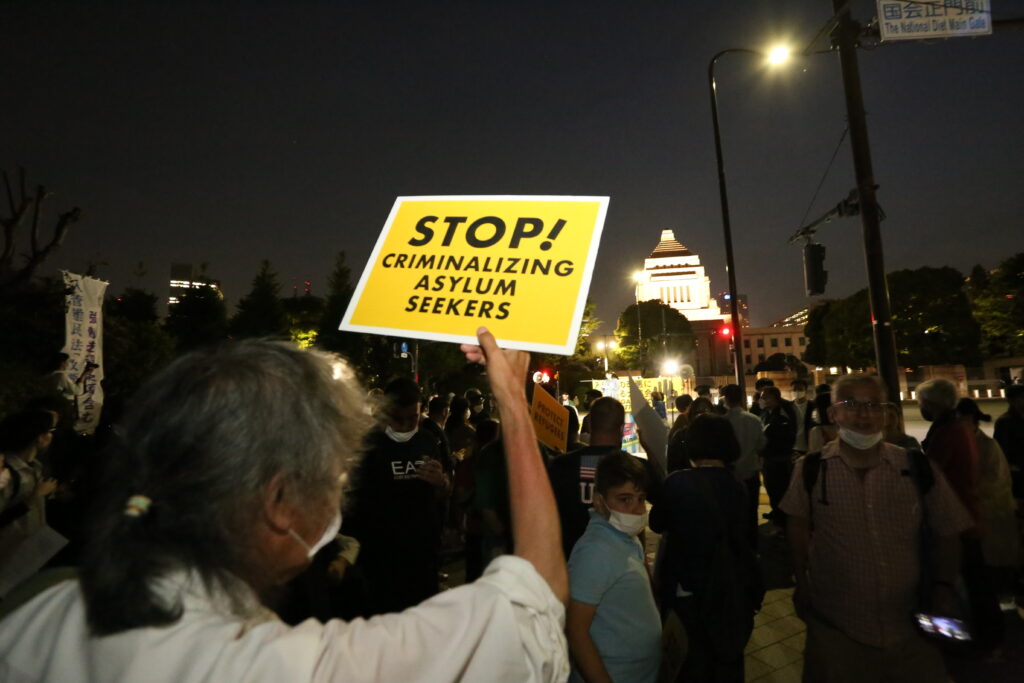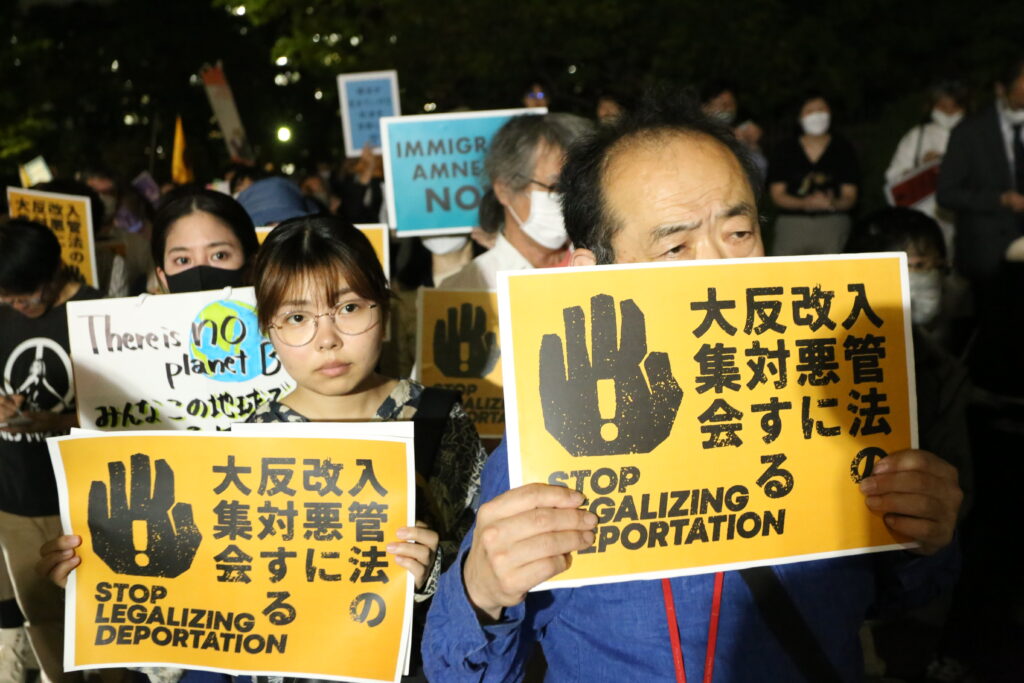



TOKYO: Several rallies by associations of parliamentary lawyers and young activists including foreigners took to the streets on Friday in major Japanese cities, including Tokyo, Sendai, Ibaraki and Nagoya, to oppose a new immigration bill.
In Tokyo, about 2,000 Japanese and foreigners gathered in front of the parliament, many carrying portraits of Wishma Sandamali, a young Sri Lankan woman who died in 2021 of hunger and thirst at an immigration detention center in Nagoya after being left unattended despite pleas for help. Footage of her agony was recently released at a press conference.
Following this incident, a bill with adjustments to the time of detention and conditions of incarceration of persons subject to deportation, which needed to be shortened according to the Minister of Justice, is to be put to the vote again.
Currently, some applicants or overstayers may be detained without being able to receive a hearing or trial by a court. They may be deported to their country of origin from which they claim they fled because of political tensions and conflicts.
Earlier in the day, as discussions on the bill unfolded in the Diet, a Thai man told Arab News Japan that he had been threatened with jail if he returned to his country because he is suspected of the crime of lèse-majesté for having criticized the sovereign. He has been granted asylum, temporarily protecting him from detention or deportation.
But the bill does not protect migrants such as Wishma, whose two sisters carried her portrait at the protest and expressed profound disappointment that the Minister of Justice had not expressed regret. They were also disappointed that the new law is similar to the one that was shelved in 2021.
The lawyer for Wishma’s family, told Arab News Japan that the period of detention of refugees could end up being extended and the situation could become worse, and he does not believe the Minister of Justice when he says that the detention holding period can be shortened.
The lawyer also expressed regret that the Renovation Party, which had initially supported Wishma’s family, now favored the new law.
Several Kurdish families at the rallies, some of whom have been in Japan for over 20 years, confessed to working but without health insurance. They must pay for their children’s medical expenses in cash.